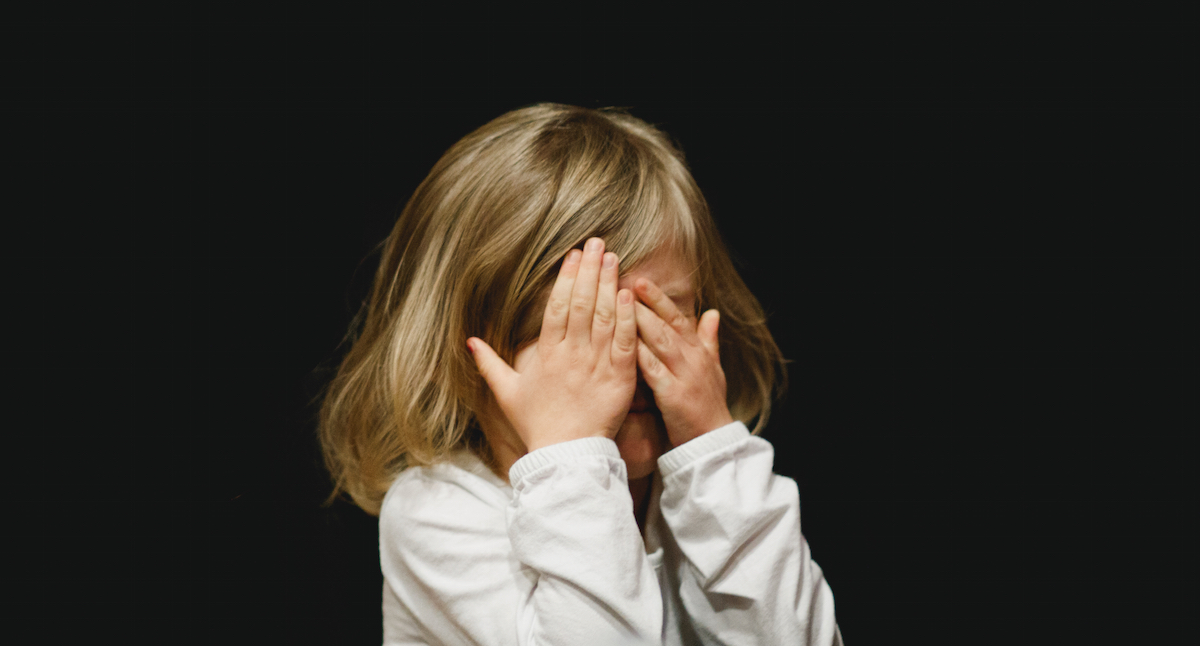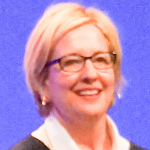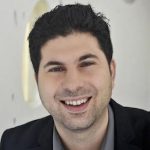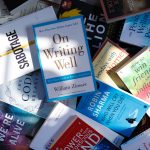Scott Barry Kaufman is the scientific director of the Imagination Institute and author of Ungifted: Intelligence Redefined and Wired to Create: Unravelling the Mysteries of the Creative Mind. Brené Brown, who recently joined Scott for this in-depth conversation, is a professor at the University of Houston and the author of the #1 New York Times bestseller Daring Greatly. She has studied shame, worthiness, and vulnerability for over a decade, and her TED Talk on vulnerability has been seen more than 27 million times. This conversation, which originally appeared on The Psychology Podcast, covers both researchers’ personal journeys with ‘cool,’ the importance of data and stories in changing minds, and the reimagining of vulnerability as a marker of courage.
This conversation has been edited and condensed.
Scott: How did you get interested in the topic of shame?
Brené: I didn’t really have an interest in that topic. I was interested in connection—I was working on my PhD in social work and I wanted to understand, what does connection really mean? How do we build it, and what gets in the way? When I started asking people about connection, what’s important to them, and what’s meaningful to them, they immediately told me stories about isolation, heartbreak, pain, disconnection, and betrayal.
I involuntarily became a shame researcher, because shame is the experience or fear of believing we’re not worthy of connection, and how people described their experiences of connection with me was by describing disconnection. I became dogged about it. You cannot believe how many people would tell me, “You can’t study that, it’s a horrible topic. You’ll never get published.” I was really attracted to it because for the first time in my life I felt not alone hearing other people’s struggles.
Scott: First of all, you were brave to continue on that topic. Then, you had this faith that it would lead into new, unexpected directions. I really like this quote of yours: “Only when we are brave enough to explore the darkness will we discover the infinite power of our light.” It seemed like you almost had to start with this topic. It was a foundation for everything else you studied, by starting with the dark.
Brené: Honestly, it was an enormous pain in the ass. People did not want to hear about it. Very early on, I knew I wanted to write for the public. I didn’t want to just write for other academics. I think so much of what’s wrong today about what’s out there and made available to the public [is that] people don’t talk about the stuff that gets in the way.
Scott: They jump right to the self-actualization without working on all the steps along the way. Is that a fair way of putting it?
“Only when we are brave enough to explore the darkness will we discover the infinite power of our light.”
Brené: Really fair. For those of us who are imperfect, like myself, I needed to normalize how this is not going to be easy. I needed someone to say, “Putting it into practice… it’s still hard.” Starting with shame, while it was really hard on me, professionally and personally, I don’t think I could have done what I’ve done had I not started there.
Trending: 5 Reasons Life Gets Better After Your 40s
Scott: Also, I find it really important to highlight that you do qualitative analysis, grounded theory, which was pioneered by your mentor Barney Glaser. Why do you prefer [qualitative], personally, and what kind of data do you think you can get out of qualitative that you can’t get from quantitative?
Brené: What I love about grounded theory is that, unlike a lot of traditional research, rather than starting with an existing theory and then proving or disproving that theory, it says, “Build a theory from the ground up, not based on other theorists, but based on people’s lived experiences.”
When you find themes and patterns emerging, then start developing that theory, then look into it. But anything before that will fill your mind with preconceived notions, and that is not building a theory on what people really live. I was researching a topic no one talks about. A lot of times grounded theories are controversial, they really push on existing theories. Glaser and Strauss wanted to understand dying and children, so they had to find a way to talk to children about their experiences during a time where doctors, nurses, parents, and clergy conspired to not tell children that they were actually dying. They had to find a way to be loyal and truthful about these children’s experiences, and not rely on what was already out there.
It’s a brutal methodology, very time consuming, very hands on. You’re not allowed to use any kind of software to code data. It’s really about staying in a process, and being true to what people are saying, not your academic interests or pet peeves. Barney was on my dissertation and I gave him a beautiful pen for the gift. I had it inscribed with, “Trust in emergence,” because the whole theory of grounded theory is trust that what you need will emerge from the data if you stay rigorous.
Scott: I want to move to this major point in your life, your 2007 breakdown—ahem, I mean spiritual awakening. I thought we could talk about that and what happened that made you shift in your research interests.
Brené: I came to the end of this research on shame feeling like I had a really good understanding of what it is, how it operates, how to distinguish it from other self-conscious aspects like guilt, humiliation, and embarrassment. But there are a lot of men and women I’ve interviewed who, rather than waking up in the morning and saying, “I’m not enough. I don’t have enough. Nothing’s good enough,” these people woke up in the morning saying, “Yeah, there’s a lot of scarcity, there’s a lot of perfectionism, but I am enough.” What did they have in common?
I went back into the data asking that question, and what these men and women had in common was the willingness and capacity to be vulnerable. That was devastating for me: I’m not a fan of vulnerability at all. I like certainty, prediction, and control. I became a researcher strictly because I hate vulnerability.
It’s funny, because one of the quotes I see people use on their blogs all the time is a quote of mine—and it’s one of my least favorite quotes. “Knowing ourselves matters, but not as much as loving ourselves.” Which still pisses me off. I wish the love and the magic was in the knowing, not the feeling. I don’t believe it anymore, but I still wish it.
Scott: Can you elaborate on that?
Brené: I can have full awareness of how vulnerability works as a concept—what it is, what the elements of it are. But unless I’m willing to embrace uncertainty, unless I’m really willing to be vulnerable, it doesn’t matter how well I academically understand it. That’s the part that’s still hard for me because I’m much more comfortable in my head than I am in my heart.
Scott: Let’s talk about wholehearted living: how do you define it?
Brené: It’s about the willingness to be imperfect, to be vulnerable. It’s about the courage to wake up in the morning and acknowledge that no matter what gets done and what doesn’t get done, that I’m enough, and that I’m worthy of love, belonging, and joy. Those are irreducible needs for humans.
The opposite of it is scarcity: “I’m not enough.” What I produce, what I create, dictates who I am and dictates my worth. Wholeheartedness is different than that. It’s, “I am enough.”
Trending: 5 Simple Strategies for Persuading Anybody
Scott: So why is being vulnerable an act of courage?
“Vulnerability is our most accurate measure of courage. Tell me how vulnerable someone is willing to be, and I’ll tell you how brave they’re willing to be.”
Brené: This is the research that has meant the most to me, and probably has changed my career the most: dispelling the mythology that vulnerability is important to courage. Vulnerability is courage. We were looking at data the other day—we have 200,000 pieces of data now—and I can’t find a single example or incident of courage that is not completely defined by vulnerability.
I was recently at Fort Bragg speaking to soldiers and joint special operations. It’s a hard group to talk about vulnerability with, because in a combat situation vulnerability equals death, and their job is to minimize vulnerability. So I asked them to come up with an example of courage that they’ve witnessed that wasn’t completely defined by a willingness to be vulnerable, a willingness to engage in risk, uncertainty, and emotional exposure. And no one could come up with an example.
It’s not that courage requires vulnerability. Vulnerability is our most accurate measure of courage. Tell me how vulnerable someone is willing to be, and I’ll tell you how brave they’re willing to be.
Scott: You talk about the flipside of vulnerability, acting cool. Can you elaborate on that?
Brené: Cool is the need to be perceived as completely in control, completely certain, risking no emotional exposure at all. It’s the straightjacket of, “I’ve got everything managed.” It’s emotional stoicism, not emotional exposure. Cool is really dangerous.
There’s that great quote from Almost Famous: “The only true currency in this bankrupt world is what you say to somebody when you’re being uncool.”
Scott: I wish my 21 year old self was listening to this conversation right now. I feel like I spent my 20s trying to be someone I wasn’t, trying to be cool, then in my 30s I started giving talks about my experiences being in special ed as a kid, and being really honest about that. People think I’m a lot cooler when I do that than when I was trying to act cool.
Brené: Yeah, because there’s some authentic badassery in that. Because it’s brave, because it’s vulnerable. There’s nothing really that great about being cool. Cool is, by definition, self-protection. I came from a family where cool was really important. I do a lot of parenting research, and one of the things I talk to parents about is that if you are consciously or unconsciously positioning cool as a family value, you’ve got to be really clear on the implications that will have on children. Kids will engage in very high risk behaviors, without thinking much, if cool is a value you put forward.
“There’s nothing really that great about being cool. Cool is, by definition, self-protection.”
Scott: How is saying no a critical component of compassion? Boundaries and compassion are not often treated together, but you put them together.
Brené: That was a real surprise to me. I have this stack of data, I laughingly called it the compassion smackdown stack. This was a stack of people who I interviewed who blew me away by their level of human compassion. I wanted to figure out what these people shared in common. I made 100 guesses. Kindness? Faith? Spirituality? What do these men and women who are so incredibly compassionate toward themselves, toward each other, toward their thoughts about human nature, share in common? It turns out that the only variable they shared was they were the most boundaried people I had ever interviewed.
Trending: 40 Nonfiction Books to Look Out for in 2024
I do 90% of my work right now in Fortune 500 companies and large organizations, and it always strikes me how many of these organizations have “assumption of positive intent” as a standard value. But no one talks about the prerequisite for that, which is, you cannot be generous and tolerant and accepting of people who are not respecting you and your boundaries. In my research, we call it B.I.G.: boundaries, integrity, generosity. In order to approach people’s thoughts, behaviors, and actions with a hypothesis of generosity you have to ensure that your boundaries are being respected by those people.
Scott: Bringing in self-compassion seems to be important, as well. You have to know who you are and what you want to set up those boundaries. When I talk about creativity, I bring in authenticity and meaning. In Wired to Create I talk about how creativity is not much more than finding your personal meaning. You talk about it in similar terms.
Brené: One of the findings from my work that people get crunchy about is my belief that there’s no such thing as creative or not creative people. There’s people who use it, and people that don’t. I do believe—and this is where people get upset–that unused creativity is not benign. Ignoring that part of our humanity comes at a cost because, as you say, we are wired for creativity. It’s part of our DNA.
My question is, if we are really wired to be creative, but people are not doing it, what gets in their way? So much of what gets in the way is shame.
Scott: Absolutely, and a lot of these other emotions that block us up. I’m working on a project about Abraham Maslow, and I’ve been reading all of his journals, and he believed that self-actualization is the height of creativity. That self-actualization really can only come about when you, piece-by-piece, start unblocking yourself. It’s like our default state is self-actualization, and then all these other things in the pyramid are things that are clogging it up
Brené: In my work, I find that that the stuff that Maslow would say clogs freedom or creates inhibition—a lot of that is learned. In many ways we’re born with a lot of freedom, and out of the many people that we’ve interviewed, 85% of them can remember something that happened in school that was so shaming it changed how they thought of themselves as learners. Of that 85%, 50% of those scars were specifically around art: writing, drawing, creativity, music.
People want to believe, “Oh, that must be resource-poor public schools where that’s happening.” It’s not. It happens in every school. Not in every classroom, of course. Some of the fiercest, non-shaming, wholehearted people I’ve ever met are teachers, but it happens a lot. If we can change the environments in which the clogging happens, that’s going to be so much more effective and efficient than trying to heal it.
Scott: Additionally, [we can] create a culture that allows people to feel comfortable sharing how they feel, the vulnerability about maybe they were bullied, and saying, “I really am not cool with that. This is how I feel about that.” That would have been huge for me, as well. But we all have that inner freedom. It really is inside us. It’s just we don’t access it.
Brené: It is, and it’s hard to make the transition. I tell people it’s one of the most important developmental milestones of mid-life. Mid-life can be anything from your mid-30s to 60s. It’s when the universe grabs you by the shoulders and says, “I’m not screwing around. You’re halfway done, and all the armor, and all the things you put around yourself, the walls, the moats you dug to protect yourself emotionally, they’re keeping you from growing into your gifts. You’re an adult now: it’s time to take those off and be vulnerable, and be who you are.”





























